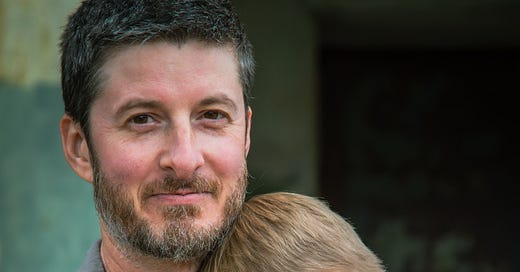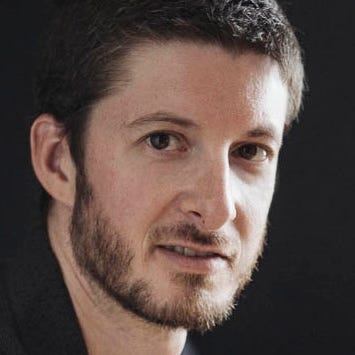Welcome to my weekly interview column.
When we talk about parent creatives ~ writers, artists, content creators ~ the focus often lands on the chaos of balancing creativity and parenting. Let’s CUT THE NOISE:
—> Parents publish books, drop albums, option screenplays, and create art + content every day.
How? That’s what we’re here to uncover.
Each week, I feature parent-creators answering eight quick questions, plus a few they handpick from my list.
Before we meet today’s guest, here’s a tiny look into my own creative life.
No-Fluff Notes from my Writing Life
Over the past few weeks, I’ve shared key steps behind launching Triumph Press, choosing a unique book size, and finding the right printer. Having been traditionally published before, I was familiar with the production process from an author’s side—but setting up my own press and publishing NOISE was an entirely new experience.
Every decision was mine, including choosing the paper quality, which felt just as critical as the words on the page.
Many self-published books fall short here, often ending up on bright white, flimsy thin paper that glares up at you—nothing like the soft, cream-toned stock used in traditionally published books. So I asked CPI (the printer) to use the same grade of paper that Penguin Random House uses, ensuring NOISE would look every bit as professional.
I wanted NOISE to feel luxurious, with the kind of high-quality paper that feels good in your hands.
It’s the difference between a book that’s inviting to read and one you can’t wait to put down. Cream paper is gentler on the eyes and makes for a smoother read.
As a virgin self-published author, I wanted to remove every possible obstacle standing in the way of someone fully enjoying NOISE.
But this choice came with its own challenges. White paper is ideal for books with images or graphs, as details stand out more sharply against it. NOISE does have a couple of tables, and fitting them into the book’s smaller size wasn’t easy. But for me, this was a small price to pay for the quality I wanted.
Owning the rights to my motherhood book meant I could make these decisions freely, ensuring every part of the book—from the paper to the print run—was up to the standard I envisioned for Triumph Press.
In next week’s column, I’ll reflect on how NOISE, the book itself, evolved creatively while I managed these book production decisions. My guest, , will share her top writing time hack that helps her solo parent alongside her creative life. Hope you’ll join us for that!
I’m thrilled to bring you today, author of
- an honest and gritty exploration of the journey through fatherhood, with all its trials and transformative moments. His publication is a space for dads and those interested in parenting with intention, and a willingness to confront the tougher lessons along the way. His book “Hiding inside a man” was recently published.Share a broad snapshot of your life. Who are you parent to and/or have caring responsibilities for?
I am a father of two children, an 8-yr old girl and a 4-yr old boy. I work by day as a project manager and brand strategy coach and I play by night as an artist/author. My wife and I are blessed to have her parents and sister nearby as an extension of our local family. And every Sunday, we are at Grandma's house getting spoiled with home-made pho 🍜
Where can we find you?
Can you share favourite praise for your writing, or words you’d love to read about your work?
“Matthew's writing is about reconciling who we are on the inside with the way we present ourselves to the world. It isn't just about parenthood—it's about self-hood.” — Will
Why do you write?
To make sense of my suffering. To expand on ideas worth sharing. To find what feels true in my experience and what is tempting clutter.
What does the inside of your writing mind look like?
It's like a bookshelf full of journals. Lots of potential stories and essays to draw from. But only a few that get nourished and sculpted and birthed into a shared space.
How is your ability to write affected by being a parent and your ability to parent affected by your writing?
Being a parent gives me so many personal development mirrors which create motivation to write — I either want to smash those mirrors or give them a sandalwood frame. Being a writer in the context of parenting means that I am more aware of my parenting choices as I observe myself either in the moment or in reflection. Sometimes, this translates to making better, more compassionate, choices.
How often do you write with your child around or not, and what kind of writing do you get done when your child is nearby?
I have a Google Doc accessible on my smartphone so when life is happening with my kids, sometimes I grab my phone and take a note about my observations. I often let them know what I'm doing by saying something like: "I really like the way you said that, I'm going to write that down." But when it's time to craft my writing into something, I'm typically on the living room couch with a laptop on a lapdesk (which is true as I write this 😀
Occasionally, I will turn on my Mac's "darkroom" mode so that I can sit near my daughter's bed at night and help her feel comforted by my presence as she falls asleep, while my eyes enjoy an entirely red and black screen.
What is your best writing habit and how did you discover it?
Definitely taking notes from everyday observation. I think I heard about this from two sources: one was a writing class I took a long time ago on Skillshare where it was introduced as a way to keep your writing authentic to life.
Alongside that, to keep a place for ideas in general. So when I write a book (I have 1 just gone public and 3 in a slow process currently), I have a separate book folder with notes for themes/plots, notes for visual ideas (for my illustrations), and notes for dialogue ideas.
What are the three most important characteristics of being a writer who is a parent?
In my case:
1) comfort with my shadow in such a way that I can be candid with my readers about my dark side as a father
2) time management -- I give myself boxes of time in my calendar to write
3) acknowledging both the healthy and unhealthy ways in which writing is my escape from the challenges of parenthood.
What or who is your secret writing weapon?
Paying attention to my kids.
What or who has been the most significant creative influence in your life?
Steven Spielberg and his movie "E.T." — that film cracked open my imagination and my heart at a time when I was an 8-yr old boy. I keep a photograph of Steven in my office as if he were a mentor from afar with a look on his face that says, "Keep reaching. Honor your creative impulses."
What’s your best writing time?
9am–11am or 9pm–11pm
What unfinished writing projects do you have lying about?
Three illustrated short stories in the form of books: one about a mindful father and spirited daughter's power struggle (almost done!); another about a husband and wife who lose their sex life after having kids and search for a way back; another about a man who faces his addiction to competing with other men.
What’s your favourite quote from a writer?
“I've learned that people will forget what you said, people will forget what you did, but people will never forget how you made them feel.” — Maya Angelou
Closing Quote
“Write to please just one person. If you open a window and make love to the world, so to speak, your story will get pneumonia.” —- Kurt Vonnegut













